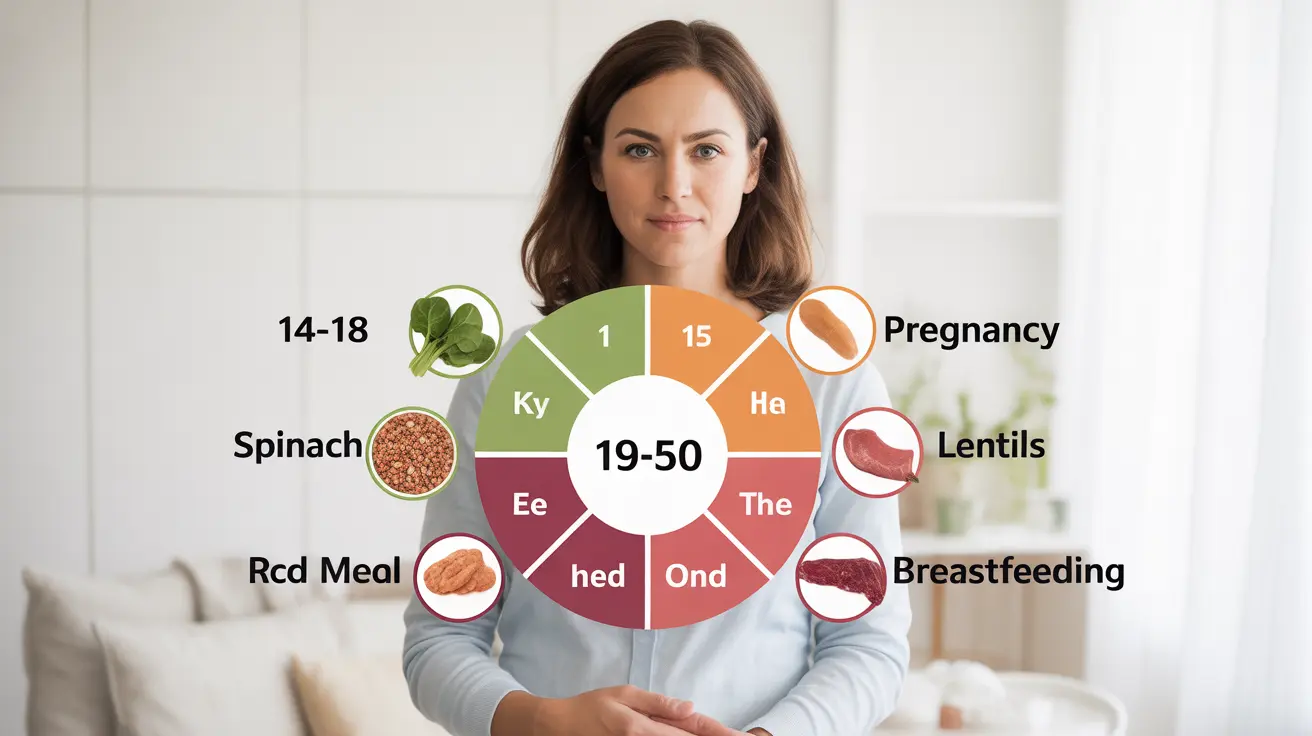Understanding how much iron you need per day as a woman is crucial for maintaining optimal health and preventing deficiency. Iron requirements vary significantly throughout a woman's life, particularly during menstruation, pregnancy, and post-menopause. This comprehensive guide will help you understand your specific iron needs and how to meet them safely.
Iron plays a vital role in carrying oxygen throughout your body, supporting energy levels, and maintaining a healthy immune system. Getting the right amount is essential - too little can lead to anemia, while too much can cause other health complications.
Iron Requirements Through Different Life Stages
Women's iron needs change dramatically throughout their lives, primarily due to biological factors and hormonal changes. Here's a detailed breakdown of daily requirements:
- Ages 14-18: 15 mg per day
- Ages 19-50: 18 mg per day
- During pregnancy: 27 mg per day
- Breastfeeding: 9 mg per day
- Post-menopause: 8 mg per day
Understanding Iron Deficiency Risk Factors
Several factors can increase a woman's risk of developing iron deficiency:
- Heavy menstrual periods
- Pregnancy and childbirth
- Vegetarian or vegan diet
- Intense physical activity
- Certain medical conditions
- Regular blood donation
Best Dietary Sources of Iron
To meet your daily iron requirements, focus on incorporating these iron-rich foods into your diet:
Heme Iron Sources (More Easily Absorbed)
- Lean red meat
- Chicken or turkey
- Fish
- Organ meats
Non-Heme Iron Sources
- Legumes and beans
- Dark leafy greens
- Fortified cereals
- Nuts and seeds
- Whole grains
Maximizing Iron Absorption
The way you combine foods can significantly impact iron absorption. Consider these strategies:
- Pair iron-rich foods with vitamin C sources
- Avoid drinking tea or coffee with meals
- Space calcium supplements apart from iron-rich meals
- Cook in cast-iron cookware when possible
Iron Supplementation Guidelines
While getting iron from food is ideal, some women may need supplements. Always consult with a healthcare provider before starting supplementation, as they can determine if it's necessary through blood tests and evaluate potential risks.
Frequently Asked Questions
How much iron does a woman need per day at different life stages?
Women need varying amounts of iron throughout their lives: 18 mg daily for menstruating women (ages 19-50), 27 mg during pregnancy, 9 mg while breastfeeding, and 8 mg after menopause. Teenage girls (14-18) require 15 mg daily.
What are the common symptoms of iron deficiency in women?
Common symptoms include fatigue, weakness, pale skin, shortness of breath, headaches, dizziness, cold hands and feet, and unusual cravings for non-food items (pica). Hair loss and brittle nails may also occur.
How can women improve iron absorption from their diet?
To improve iron absorption, consume vitamin C-rich foods alongside iron sources, avoid drinking tea or coffee with meals, use cast-iron cookware, and separate iron-rich meals from calcium supplements. Combining plant-based iron sources with meat can also enhance absorption.
When should women consider taking iron supplements and are they safe?
Women should consider iron supplements if they have diagnosed iron deficiency, are pregnant, have heavy periods, or follow restrictive diets. However, supplements should only be taken under medical supervision as excess iron can be harmful.
Why do menstruating and pregnant women require more iron than other women?
Menstruating women lose iron through monthly blood loss, requiring additional iron to replace what's lost. Pregnant women need extra iron to support increased blood volume and provide iron for the growing fetus and placenta.




